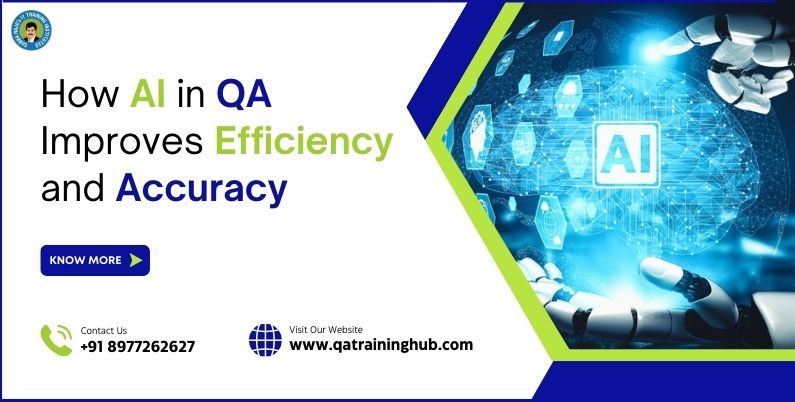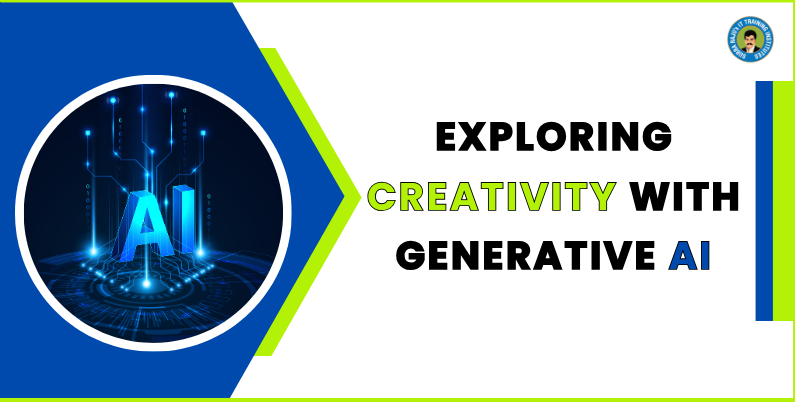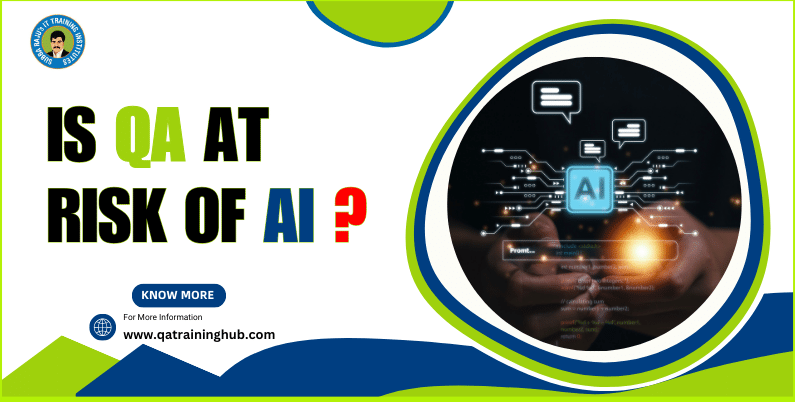
Advancing QA and Software Testing Processes with AI: A Comprehensive Guide
In software development, maintaining the quality and dependability of products is crucial. Quality Assurance (QA) and software testing are essential parts of the software development process. They help find bugs, improve user experience, and boost performance. As technology, especially artificial intelligence (AI), progresses rapidly, traditional QA and testing methods are experiencing significant changes. This thorough guide explores Advancing QA and software testing processes with AI. It provides information on the good things, difficulties, and the best ways to do it.
Understanding AI in QA and Software Testing
Artificial Intelligence, commonly known as AI, mimics human intelligence in computer systems. In QA and software testing, AI tools and methods automate tasks, analyze data intelligently, and predict outcomes, improving the speed and accuracy of testing.
Key AI Technologies in QA and Testing
Machine Learning (ML): ML algorithms help systems to learn from data, recognize patterns, and make predictions. In QA, ML models can identify anomalies, predict failure points, and optimize testing strategies based on historical data.
Natural Language Processing (NLP): NLP helps computers understand and generate human language. It’s useful for analyzing written requirements, user comments, and test cases, making communication clearer within QA teams.
Computer Vision: Computer vision algorithms allow machines to understand and examine visual information from images or videos. In software testing, they can automate UI testing, detect layout inconsistencies, and identify visual defects with precision.
Deep Learning: Deep learning, a type of machine learning, uses neural networks with many layers for complex pattern recognition tasks. Deep learning models can be employed in QA for image recognition, speech analysis, and anomaly detection in large datasets.
Benefits of AI in QA and Testing
The integration of AI into QA and testing processes provides a wide range of benefits, revolutionizing the way software is developed, tested, and delivered.
1. Automation and Efficiency
Testing tools driven by AI automate repetitive tasks like creating test cases, running them, and analyzing results. This reduce on manual work and speeds up the time it takes to get products to market. AI-powered testing frameworks can run tests continuously, covering everything thoroughly and providing feedback faster.
2. Enhanced Test Coverage
AI algorithms can smartly rank test cases according to risk factors, past data, and code updates, making test coverage and resource use more efficient. By pinpointing key paths and unique situations, AI-powered testing guarantees thorough validation of software functionality in various scenarios.
3. Predictive Analytics
AI enables predictive analytics in QA, forecasting potential defects, performance bottlenecks, and usability issues before they manifest in production environments. By analyzing historical data and patterns, AI models can anticipate future challenges, enabling proactive mitigation strategies and informed decision-making.
4. Improved Accuracy and Reliability
AI-driven testing tools demonstrate higher accuracy and reliability than manual testing methods. Machine learning algorithms can detect slight variations, irregularities, and regression trends in software performance, guaranteeing strength and consistency throughout updates.
5. Scalability and Flexibility
AI-driven testing solutions can easily grow and adjust to changing project needs and environments. They can scale up automation for various platforms, adjust to shifting user habits, and handle new features. AI-based QA frameworks provide exceptional flexibility and scalability.
Difficulties and things to think about:
Although the advantages of AI in QA and testing are convincing, organizations need to tackle various challenges and factors to fully harness its potential.
1. Data Quality and Bias
The effectiveness of AI models in testing largely depends on the quality and variety of the data used for training. Biases present in training data can cause misleading outcomes and wrong forecasts. Organizations need to guarantee data quality, address biases, and constantly improve AI models to ensure accuracy and fairness.
2. Skill Gap and Expertise
Effectively using AI in QA demands expertise in machine learning, data science, and software testing. Organizations might struggle to find, train, and keep staff skilled in both domain knowledge and AI. Investing in training and teamwork across departments is crucial for filling this skill gap.
3. Interpretability and Transparency
AI algorithms, especially deep learning models, are sometimes seen as “black boxes,” making it hard to understand how they make decisions. In QA and testing, it’s important to know why AI suggests certain actions or predictions for trust and accountability. Organizations should focus on explainable AI (XAI) methods to make AI more transparent and promote better collaboration between humans and AI.
4. Integration and Compatibility
Integrating AI-powered testing tools into your current QA systems and workflows could present challenges with compatibility and integration. To ensure successful adoption and deployment of AI-driven testing solutions, it’s crucial that they seamlessly integrate with your existing test management systems, version control platforms, and CI/CD pipelines.
Best Practices for AI-driven QA and Testing
To harness the full potential of AI in QA and testing, organizations can adopt the following best practices:
Start Small, Scale Gradually: Start with pilot projects or proof-of-concepts to evaluate the feasibility and effectiveness of AI-driven testing in specific scenarios. Gradually scale up based on real-world results and feedback from stakeholders.
Collaborative Approach: Encourage collaboration among QA, development, and data science teams to combine domain knowledge with AI capabilities effectively. Support cross-functional teams in creating AI-driven testing solutions that suit the organization’s requirements.
Continuous Learning and Improvement: Encourage a culture of constant learning and experimentation to improve AI models, improve testing approaches, and stay updated with evolving technology. Encourage knowledge sharing, provide training programs, and engage with the community to develop AI expertise within the organization.
Ethical AI Practices: Make ethical considerations, fairness, and transparency a top priority in AI-driven testing projects. Set up governance frameworks, ethical guidelines, and accountability measures to ensure responsible adoption of AI and reduce risks.
User-Centric Design: Make sure that AI-driven testing efforts match what users want, like, and expect to improve product quality and user experience. Use feedback from users, test usability, and analyze feelings to continuously make software better and meet user satisfaction goals.
Conclusion:
In conclusion, Advancing QA and Software Testing Processes with AI presents a transformative opportunity for organizations aiming to improve their software development lifecycle. By incorporating AI technologies like machine learning, natural language processing, and computer vision, QA teams can achieve unmatched efficiency, accuracy, and scalability. These advancements not only make testing processes more efficient but also guarantee higher-quality software products that align with the changing needs of users.
At QA Training Hub, we’re committed to providing QA professionals with the knowledge and skills required to utilize AI in their testing procedures. Our thorough training programs include the newest AI-driven testing tools, methods, and top practices, empowering professionals to keep up in the fast-changing tech world. By understanding the benefits and challenges associated with Advancing QA and Software Testing Processes with AI, we are well-prepared to implement solutions that encourage progress and high-quality performance in ensuring software quality.
Come join us at QA Training Hub to keep up in the competitive world of software development. By learning AI-driven QA and testing methods, you can help make strong, dependable, and easy-to-use software products. This will promote innovation and excellence within your company.







